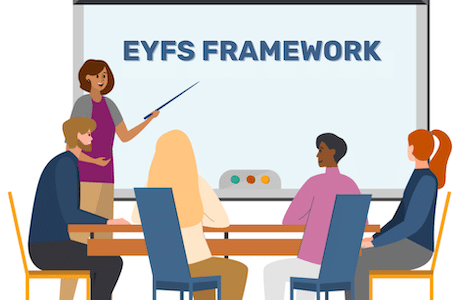Guest Author: Jon Trew
Introduced in the House of Commons on 25 February 2025, the Crime and Policing Bill had its second reading on the 2nd of March 2025. There are two more stages in the House of Commons before it is debated in the House of Lords and then taken into the final stages of consideration to be given Royal Assent and introduced into law. The legislative timetable has indicated that this process should be completed before the start of the parliamentary recess on 31 July 2025.
Scope and aims of the Crime and Policing Bill
The Bill has a very broad scope, incorporating anti-social behaviour, offensive weapons, provisions on the powers of police and several other areas. The government says the Bill supports the delivery of its ‘safer streets’ mission, which includes targets to halve knife crime and violence against women and girls in a decade, and ‘transforming neighbourhood policing’.
The Bill also includes some of the measures that were proposed in the previous Criminal Justice Bill 2023-24 which failed to become law due to the election. Of particular interest to safeguarding practitioners and professionals working with children are clauses 17 to 33, which include new legislation about Child Criminal Exploitation (known as CCE).
Modern Slavery & The National Referral Mechanism Framework
CCE involves adults coercing and luring children or young people under the age of 18 into committing crimes, often by organised gangs. There are existing laws that are currently used to protect children from criminal exploitation. These include provisions of the Modern Slavery Act 2015. However, while these can be used to help tackle the problem, existing legislation does not address child criminal exploitation as a specific form of offending.
The National Referral Mechanism (NRM) is a framework for identifying victims of human trafficking or modern slavery and ensuring they receive appropriate support. Referrals should be made if there are concerns that a child or young adult is being criminally or sexually exploited. It is often the default response to potential cases of Child Criminal Exploitation (CCE).
In 2023, 7,432 children were referred to the NRM, of which 42% were for reasons related to CCE. However, there are concerns that this process can be slow and children can get caught up in the criminal justice system before the National Referral Mechanism has had time to consider the young person’s case.
New legal measures to address County Lines and CCE
The Bill proposes to address the difficulty in prosecuting CCE cases by making it an offence for an adult to use a child to commit any kind of criminal activity. Crucially, the offence will target the inherent imbalance of power that is exercised by an adult who coerces a child to commit crime. The Bill will introduce a maximum penalty of ten years’ imprisonment for adults who exploit children for criminal purposes.
County lines is just one type of Child Criminal Exploitation and refers to the practice of trafficking drugs and/or money from major cities to rural areas using dedicated phone links. This criminal enterprise often exploits vulnerable individuals, particularly children, as couriers or ‘runners’. Police data shows that 22% of those involved in county lines are children typically between the ages of 15 to 17 years old.
Preventing Child Criminal Sexual Exploitation
The legislation also aims to be proactive as well as reactive to CSE (Child Sexual Exploitation). The Bill introduces something called a Child Criminal Exploitation Prevention Order. This is a preventive and protective measure that the government believe will restrict suspected groomers from working with children, contacting certain vulnerable individuals or entering specific areas. These orders will apply for a minimum period of at least 2 years, allowing potential employers carrying out DBS and similar checks to identify CCE offenders where previously such offenses may not have been clear.
The Bill recognises grooming as an aggravating factor in sentencing through Clause 43, ensuring that offenders who groom children specified child sexual offences face harsher penalties. However, it remains unclear if these crimes extend to offenses committed overseas, meaning there is a risk that abusers may continue offending in places overseas where policing is less rigorous.
To support the implementation of these offences, the government will publish guidance for the police and other partners. The Bill will also make children automatically eligible for ‘special measures’ when giving evidence in court proceedings related to these offences. Special measure includes the use of a remote video link, physical partitions so the accused cannot see the witness or the judge removing their wig and gown to make the court appear less intimidating.
Safeguarding against child exploitation
Child criminal exploitation does not occur in isolation. Children often experience multiple overlapping forms of abuse, such as sexual exploitation and county lines. They may also experience forms of abuse such as neglect and emotional abuse that make the child more vulnerable to the grooming and exploitation.
To ensure that the new offences are effective, safeguarding leads in schools need to be included in and aware of the different pathways available to practitioners and judicial professionals to safeguard children effectively. A school’s knowledge and recordings about a child’s life and experiences are vital tools in protecting them from abuse like CCE.
CPOMS StudentSafe provides a secure and comprehensive platform to record, monitor and report on any and all potential concerns relating to child criminal exploitation. With fully customisable categories of concern and case management, the easy-to-use software can support all professionals working with children to streamline and enhance safeguarding processes both inside and outside of school.
As the government introduces new Child Criminal Exploitation Prevention Orders, it is essential for schools and all settings working with children to maintain effective records for safer recruitment. CPOMS StaffSafe allows leaders, HR professionals and safeguarding leads to easily keep up to date records of DBS checks and similar background screening processes. The platform also provides a secure and effective system for staff to report any low-level concerns regarding other personnel in the workplace, so that appropriate interventions can be carried out before an issue escalates.
To discover how StudentSafe and StaffSafe can support safeguarding and protect children from exploitation in your setting, book a demo today.




